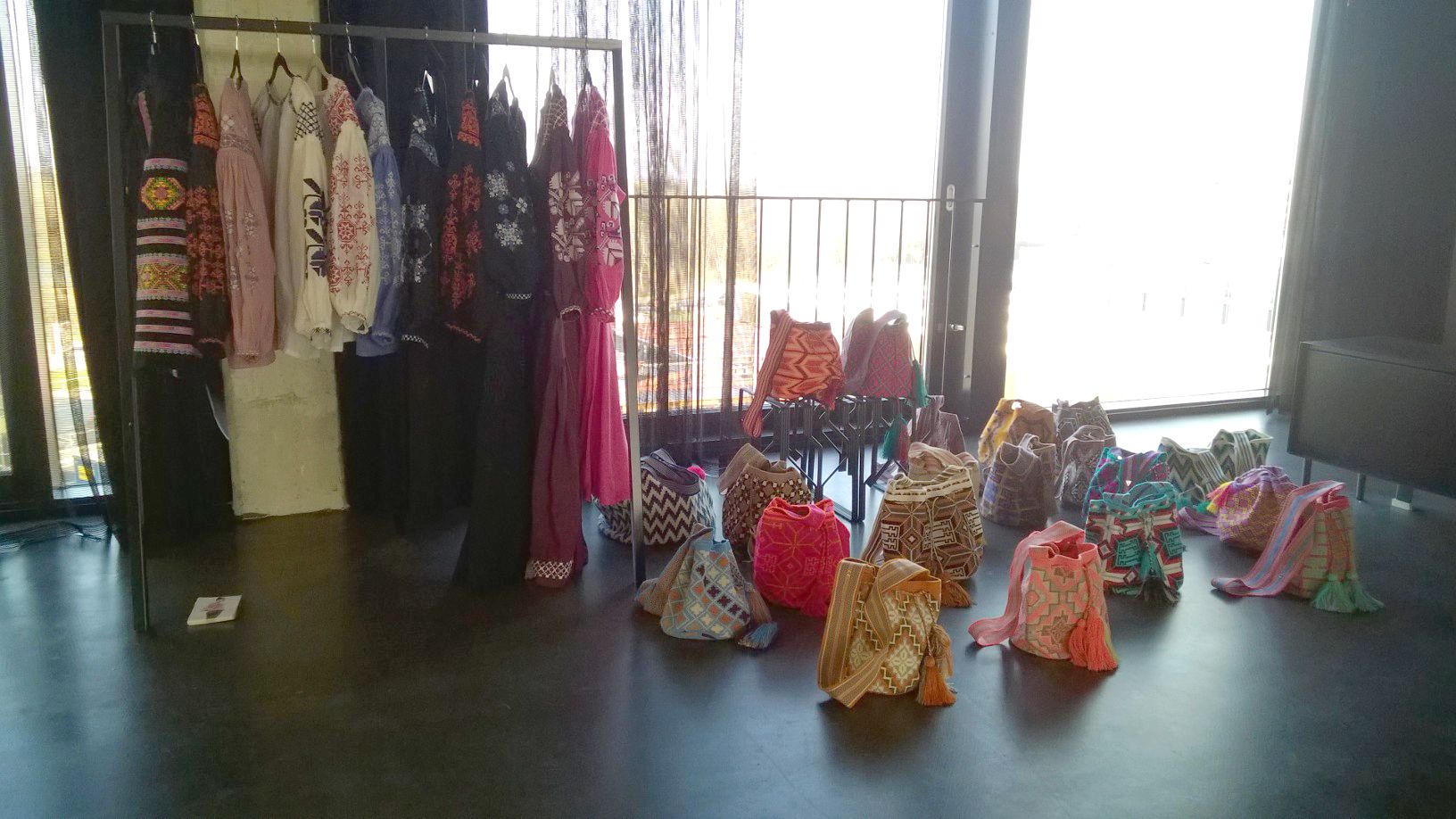Italian astrophysicist Mary Sini and Ukrainian political scientist Natalka Hansen were neighbours in Cape Town.
Kindred spirits, they quickly bonded and formulated plans for a sustainable fashion brand based on the artisan manufacturing of South African ostrich leather.
From the Cape to CPH
While South African ostriches exclusively provided the leather, when one of them relocated to Denmark they chose to establish their brand here as private foreigner entrepreneurs, and Naledi Copenhagen was launched in 2010. Success quickly followed, both in Denmark and overseas.
The pair recently hosted a sneak preview of Naledi Copenhagen’s upcoming collection at their elegant showroom in Islands Brygge. The Copenhagen Post Weekly took the opportunity to ask them about the cosmopolitan journey of their Danish brand.
How would you describe Naledi Copenhagen?
NH: It is an exclusive luxury accessories brand focused on sustainable manufacturing. The leather of the bags looks like python, but it is actually ostrich from South Africa, which is a farm animal not in danger. It doesn’t come from illegal sources nor is it killed in cruel ways. The ostrich leather comes from 100 percent sustainable operations in which the animal is completely consumed.
This is a big success for the country. Thus, we decided to name our brand Naledi, which means ‘a star’ in the Sotho language, as we wanted to keep a connection with the place where everything started.
Why did you choose to base your brand in Denmark and how did you start a fashion label as foreigners here?
NH: I moved to Denmark because my husband is Danish – we have three children. The procedure to set up a company in Denmark is actually very simple. There is a website, webreg.dk, where you can set up your business as a private entrepreneur; in ten minutes you have your registration number. From that moment on you have your own business: you can import, export, sell, buy.
Also the ‘kommune’ [the muncipality] provides support: it has consultants paid to help you. Every kommune loves to have expats doing business in Denmark, especially if they come for spousal reunification.
About the creation of the product, the first thing to do is to have an idea of what you want to sell and to find your segment of the market. I would suggest taking a sample of your product – don’t show it to your friends because they will say it’s good – and going around the city.
Take it to a shop that you think would find it interesting. Introduce yourself, say that you are working on it, and ask for their feedback about the product: “Do you like it? Would your customers buy it?” Don’t try to sell it, just ask for their opinion. Doing so also helps to make connections for the future. This is what I did and I highly recommend it: just go around Copenhagen!
While based in Copenhagen, this is a truly international brand. Can you illustrate your worldwide connections?
MS: I am the global sales director of the brand and, as the Danish market warmly welcomed our products as soon as we launched our brand, we decided to expand the network of our suppliers so they became much more international.
We give preference to small artisan studios, obviously ones in South Africa, but also in Italy, Spain and … for example, our scarves are made by a family in Kashmir that we personally know. We also started a collaboration with women from Colombia: we sell handknitted handbags created together with SUSU, which promotes ancient Latin American Wayuu crafts.
Today Naledi Copenhagen is sold at around 30 exclusive boutiques in Denmark, but also in Norway, Sweden, Italy, UK, Singapore and China.
What about your involvement in international charity foundations?
MS: As we already supported charities in Denmark, Ukraine and UK, we decided to also promote a charity in South Africa. This is how we started our collaboration with the Desmond and Leah Tutu Legacy Foundation, which commissioned us to design a bag for them.
The ostrich clutch we created is named ‘Leseli’, which means ‘Light’ in the Sotho language, and a percentage of the global sales of the bag is donated to support the foundation’s charitable work in South Africa and worldwide.














